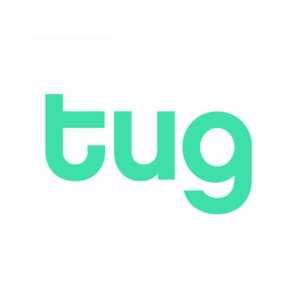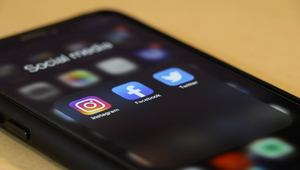
Why Clear Language Is Vital During a Crisis

'Stay Alert' is the kind of slogan you might expect to see plastered on the side of a motorway bridge to warn truckers not to fall asleep at the wheel. Or on promotional cans of energy drinks given out to feverish university students in the lead up to exam week. Not the latest meme-able advice from our government on how to control the spread of an invisible and deadly disease. But it’s just the latest example of confused and unclear use of language in the government’s handling of the coronavirus.
Last week, the Secretary of State for Health and Social Care, Matt Hancock, was accused of ‘tone-policing’ a female MP and doctor in the House of Commons when she challenged him about the government’s coronavirus testing strategy.
From Boris Johnson talking about shaking hands with infected patients while the rest of Europe enacted lockdown measures, to Donald Trump’s infamously meme-able suggestion that 'medical doctors' could use disinfectant and bright lights to treat the virus, many government officials are struggling to get the tone right during the Coronavirus crisis.
Brands too have struggled to get the tone right during the pandemic. Many have been forced to pull adverts and campaigns which were created before the lockdown was implemented as they depict scenes of people in close proximity, socialising, hugging, or even – in the case of KFC – licking their fingers. Others have been criticised for behaving as if there is nothing out of the ordinary. Tesco’s half-price clothing sale is at best tone-deaf (who needs new clothes right now?), at worst an irresponsible strategy to increase footfall and profits at a time when people are only meant to be visiting supermarkets for essential groceries.
People haven’t responded well to po-faced celebrities bemoaning having to spend lockdown in their luxurious mansions, while millions are confined to tiny apartments with no income. PR agencies have even introduced checklists to screen influencers to ensure they aren’t posting inappropriate content during the pandemic. So how can brands walk the line between maintaining a marketing presence and being sensitive and responsible during a crisis?
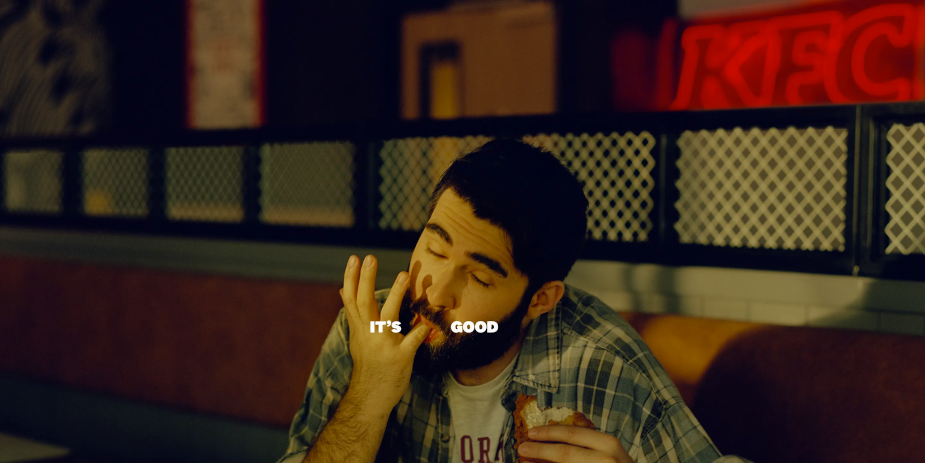
How can brands get the tone right during a crisis?
Don't use the same tired words and phrases. Yes, these are unprecedented times. It is difficult, challenging, uncertain and worrying. But these words have become boring and meaningless through overuse. Find different ways of communicating to your readers, or find something else to talk about.
Do keep using your brand's tone of voice. If your brand’s tone of voice is usually fun, informal and friendly, now is not the time for stiff and serious language. People who are loyal to your brand will find it jarring. You can still be sensitive to the current climate without losing your brand persona. Maintaining an authentic tone of voice might require some thought and planning. You may need to review your content calendar and consider whether scheduled content is right during lockdown restrictions.
One brand that is doing a great job of retaining its tone of voice while adapting to the crisis is Innocent. Their daily reminder of what day it is on Twitter is light-hearted, funny, and shows they understand that their followers are living through uncertain times without explicitly saying so. The tweets consistently receive high engagement, even weeks after they started posting them.
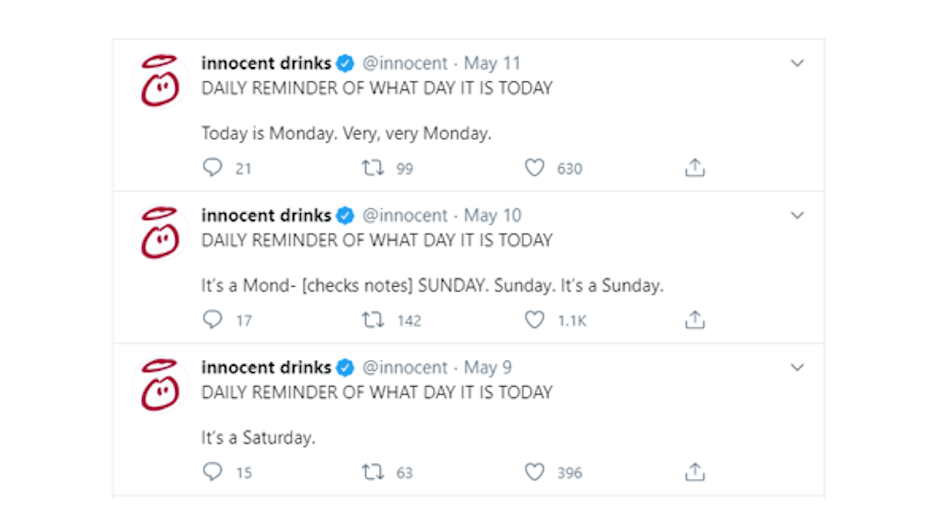
Don't fall silent. Whether your industry has been impacted drastically by the pandemic or not, now is not the time to fall silent. Many of our clients have been affected by the lockdown, but our advice as an agency has been to continue creating content. For many this has meant pivoting away from their usual topics, but by adapting they are able to stay front of mind and reassure their customers that they can be resilient and bounce back when things start returning to normal.
Do be clear and concise. When people are worried, they need reassurance and clear guidance, something the UK Government has struggled to provide from the outset. If your business has been affected by coronavirus, your customers will no doubt turn to your website to find out how your services have been impacted and how this might affect them. Use clear, concise language to explain how they might be affected, and what they can do.
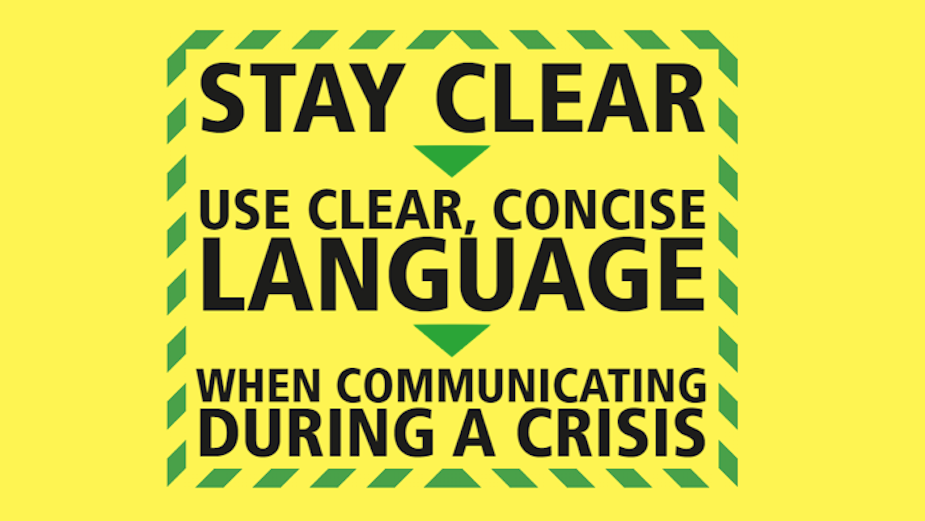
How can brands return to ‘normal’ when lockdown begins to ease?
It has been said that we’re collectively going through the five stages of grief during lockdown. First there was disbelief. “Is this really happening?” we asked ourselves. Next came anger, followed by sadness. I have reached the acceptance stage, having finally rearranged the living room to the optimum layout for work, rest and play. Which means hope and optimism is yet to come.
And when it does, brands need to be ready. Digiday have already reported that coronavirus-related content has been drawing fewer viewers on TV, leading publishers to shift back to usual programming topics. Another study from Marketing Dive found that that consumers have “appreciated Covid-19 related marketing messages but now appear ready to move on.” Perhaps we have reached covid-19 information saturation point, or maybe people have simply found time during lockdown to pursue broader interests.
As the conversation turns towards our ‘Exit Strategy’ post lockdown, marketers too must look to the future. The world may be very different, but if there’s one thing this lockdown has proven in our industry, it’s how adaptable we are to change.







